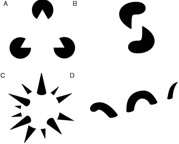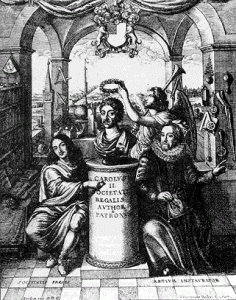What I Read While I Was In Europe
With two 10+ hour days of flying, plus several train days sitting between parts of Paris and Italy (including one where Ken and I went on a loop between the two, continually fucking up our connections), I had a lot of time during the 12 days of traveling in Europe with which to spend with my head stuck in a book. As a result, I plowed through 4 books and the beginning of a fifth, all works in translation, including titles by Jacques Roubaud, Alain Robbe-Grillet, Eric Chevillard, Zoran Živković, and Werner Herzog.
Here are some brief thoughts on each:
The Great Fire of London by Jacques Roubaud (Dalkey Archive)
Kicked off the trip with this fat badboy from Dalkey, which carried me up to Washington DC and then through several days in Paris. It’s one of the more original premises and executions of a book I’ve seen in a while, and no surprise in that it is from a major Oulipian. Basically, the book is a book about the book itself more than a book of normal concerns. Not quite a writer writing about writing (thank god), but more a writer spooled in the blank space between such, and crushed in his weird onslaught of memory, a dream conceit of trying to compose a novel that never exists, and the crippling brainspace of having lost a wife. Not quite nonfiction, not quite not, a text about text that manages to do a lot of beautiful examinations of life, such as making jelly, and the descriptions of shapes of rooms and light, among which I was surprised at how compelling he was able to keep the compulsion alive across such a massive tome that essentially is all talk of what it is over being what it is, but then extending through that to actually become the blank. Terrifying in the most on-its-face banal of ways, and electric for its method. Felt right to read this one in Paris, which I had not even realized the connection of which (nor, I swear, did I mean to bring all French authors to France, it just happened).
Nah, Blake. It’s Friday. Let’s speed it up.
httpv://www.youtube.com/watch?v=s3vMOdv7pgs
Okay, that Swedish guy kills this.
Also, my head hurts a little. Here is assistance.
httpv://www.youtube.com/watch?v=KQFn3nbO1nE
Fuck Books, It’s Friday, Let’s Slow Out Live, Mane
Thanks to Gene, this whodie-in-the-truck ‘freestyle’ makes me happy to be alive:
Followed by one of my favorite blankpunk songs, live made. Yeah, I just made up blankpunk.
Over at The Rumpus, Jami Attenberg says that Everything Matters! by Ron Currie Jr. is that last book she loved. Coincidentally, this is also the last book I loved. Currie is a smart, funny writer, and his book is fantastic.
Guest post: Gabriel Blackwell on Ross Macdonald

“The surprise with which a detective novel concludes should set up tragic vibrations which run backward through the entire structure.”
That’s Kenneth Millar, better known as Ross Macdonald, who wrote eighteen Lew Archer novels over thirty years before Alzheimer’s put an end to his career. Incredibly, as the man got closer and closer to Alzheimer’s, his structures, those surprises, only became more and more complex. The best of his novels, from The Galton Case right on through to The Blue Hammer must have required extraordinary mental effort just to keep the characters straight, which, of course, they never were to begin with.
Macdonald’s characters rarely have fixed identities. Those surprises that he mentions in the quote are less Agatha Christie or Sherlock Holmes than “General Hospital”: a wife is really her husband’s daughter, a Frenchman is really a Panamanian, but also really a Frenchman, etc. Like I said, complex. Phantasmagoric even. Sometimes illegal. READ MORE >
August 27th, 2009 / 4:01 pm
Some sort of discussion about race, gender, economic class in indie lit ongoing at Pank.
Hot or Naut: Dick Cheney
(via Gawker) A photo of Dick Cheney’s bookshelf was leaked from a then-public Picassa album for some party that the Cheneys hosted at their home. We feel a Haut or Not is called for.
Had Cheney known The Great War was about World War I and not Iraq, we would’ve saved his amazon credit for a new pacemaker. That phallic shaped thing adorning the silhouetted figure on Liberty! is, of course, a gun. Glad to see him exhibiting tolerance for the french Photo du Jour. Prior to such internationalism, the only thing “of the day” concerning him was Lipitor™. One wonders if Dick can read Arabic, as seen on one of the spines. As for Kuwait, he c-couldn’t k-wait to get started.
Of course, eyes are really on those Matryoshka dolls, which has metaphorical meaning to Russians as “similar object-within-similar object,” so we can assume that the irony, while intentional, was lost in translation. “Matryoshka” comes from the latin “mother,” and the whole incumbency thing symbolizes fertility — though when looking at the dolls, the only mother that comes to mind is motherfucker.
Rating: Not
Bludgeoned with romance
 Nicholson Baker’s quirky latest novel, The Anthologist, is comprised of failed poet Paul Chowder’s ruminations on poetry and how unrequited love for it has essentially ruined his life. Through it all, though—the rejections from Paul Muldoon, Chowder’s lady friend leaving him, the failure of his floundering flying spoon poems—he clings to the words and lives of Roethke, Bogan, Swinburn, Keats and the rest with a tenacity not seen since Bob Backlund’s crossface chickenwing rampage. It has actually inspired me to start reading poetry again, which I haven’t done regularly in some time (any recommendations?). All his talk of olde timey poets has also pushed me to check out Richard Holmes’s The Age of Wonder, a lovely book exploring the connection between gentlemen scientists of the day and iconic poets such as Wordsworth and Coleridge. Dudes were making enduring discoveries and creating timeless art long before they could even grow a proper pre-Victorian mustache! All very impressive. I suspect the era’s precociousness had something to do with all the frock coats, shoe buckles, pantaloons and widespread leeching. God save the Queen.
Nicholson Baker’s quirky latest novel, The Anthologist, is comprised of failed poet Paul Chowder’s ruminations on poetry and how unrequited love for it has essentially ruined his life. Through it all, though—the rejections from Paul Muldoon, Chowder’s lady friend leaving him, the failure of his floundering flying spoon poems—he clings to the words and lives of Roethke, Bogan, Swinburn, Keats and the rest with a tenacity not seen since Bob Backlund’s crossface chickenwing rampage. It has actually inspired me to start reading poetry again, which I haven’t done regularly in some time (any recommendations?). All his talk of olde timey poets has also pushed me to check out Richard Holmes’s The Age of Wonder, a lovely book exploring the connection between gentlemen scientists of the day and iconic poets such as Wordsworth and Coleridge. Dudes were making enduring discoveries and creating timeless art long before they could even grow a proper pre-Victorian mustache! All very impressive. I suspect the era’s precociousness had something to do with all the frock coats, shoe buckles, pantaloons and widespread leeching. God save the Queen.
August 27th, 2009 / 12:28 pm
